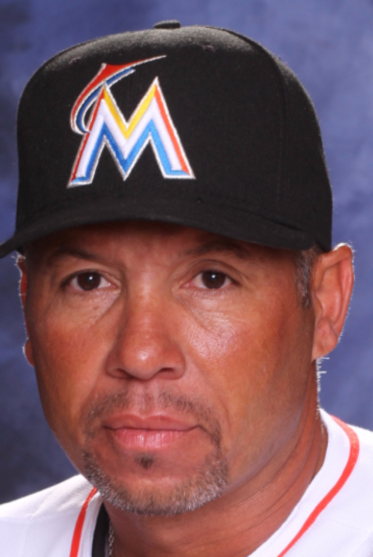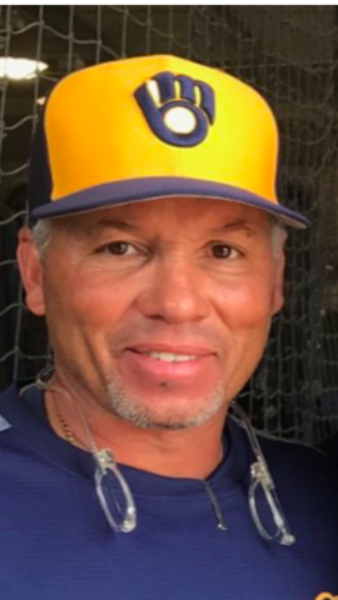
By STEVE KRAH
As Josh Loggins grew up in Tippecanoe County, Ind., his baseball position was well-established.
Young Josh was a shortstop.
When Loggins reached the eighth grade at Battle Ground Middle School he met John O’Maley, the head baseball coach at Harrison High School in West Lafayette.
O’Maley told Loggins that he would be a catcher in his program.
Loggins resisted at first, but came to excel behind the plate with the Harrison Raiders.
On March 11, 1995 — the eve of the baseball season — O’Maley passed away at 46 and six Harrison seniors — Loggins, Nate Linder, Brad Pitts, Brad Sherry, Dusty Sims and Jimmy Taylor — served as pall bearers. The players wore No. 42 patches on their uniforms all season as a tribute to O’Maley.
Jerry Galema became Harrison’s head coach and the team went on to go 34-2 and win the 1995 state championship, besting Fort Wayne Concordia 3-1 in the title game.
“He was passionate about doing the right thing,” says Loggins of Galema, who is now the school’s athletic director. “He was a very detailed, very organized coach and could not have been a better person.”
Future big leaguers Todd Dunwoody (Class of 1993), Erik Sabel (Class of 1993) and Eric Bruntlett (Class of 1996) were Loggins teammates at Harrison.
Loggins was an Indiana High School Baseball Coaches Association first-team all-stater and IHSBCA North All-Star as a senior catcher. It was as a backstop that he was selected in the seventh round of the 1995 Major League Baseball First-Year Player Draft by the Pittsburgh Pirates.
Instead of going pro out of high school, Loggins went to Purdue University then transferred to the University of Kentucky and played for Wildcats head coach Keith Madison.
The UK coach had quite an impact on Loggins.
“I couldn’t say this more — and I get a little choked up — he’s the best individual I was ever introduced to,” says Loggins of Madison. “He is a genuine individual. It’s how he carries himself.
“He taught us how to be men. Coach Madison took me in where I was struggling to find myself. He helped me immensely. He got me back to confidence and kept me on a path to professional baseball. He’s a very good man.”
At Kentucky, Loggins would start at catcher in midweek games and in Friday and Saturday contests during Southeastern Conference series and be in right field in Sunday.
The righty swinger hit .384 with 15 home runs, five triples, 20 doubles, 63 runs batted in and six stolen bases in 57 games in 1998.
Loggins comes from a baseball family. He father — Vernon Porter “Mick” Loggins — played in local leagues in Danville, Ill. He became an English professor and poet with the pen name V.P. Loggins.
Kenny Loggins, Josh’s uncle, also pitched in Danville.
Grandfather Elmer “Buck” Loggins was a pro in Alabama as was his brother who was known as “Black Diamond” Loggins. He was a coal miner who doubled as a ballplayer.
It was as an outfielder that Josh Loggins was picked in the 11th round of the 1998 MLB Draft and was sent to Idaho Falls, where he hit .341 with eight homers, five triples, 20 doubles, 64 RBIs and and eight stolen bases in 71 games.
Loggins played for the Fort Wayne (Ind.) Wizards in 1999, hitting .297 with 14 homers, seven triples, 29 doubles, 85 RBIs and and 12 stolen bases in 136 games as the regular right fielder.
Fort Wayne was managed by Dan Simonds, who served stints at Miami (Ohio) University and Xavier University and associate head coach at Indiana University (2014) before becoming Director of Baseball at IMG Academy in Bradenton, Fla. Before being with the Wizards he had also been an extra in the movie “Rookie of the Year.”
“Dan was a great guy,” says Loggins. “That was my first experience of what it means to be a professional baseball.
“You no longer call them ‘Coach’; it’s their first name or nickname. You are an equal. You are a professional. (Simonds) was relatable. He was a players’ manager.”
Loggins played professional baseball until 2005. He reached Double-A with the Padres, New York Yankees and Colorado Rockies organizations.
Parts of 2002 and 2003 were spent with the independent Washington (Pa.) Wind Things. He played for the independent Joliet (Ill.) JackHammers in 2004 and 2005. In both places his manager was Lafayette’s Jeff Isom.
As business partners, Loggins, Isom and Dunwoody had a stake in the On Deck Training in Lafayette. Isom runs the facility now with Bobby Bell and Pat Murtaugh as instructors and has a travel ball organization.
Loggins’ average in affiliated Minor League Baseball was .288. He hit .315 in indy ball.
“Those were the best times I had in professional baseball,” says Loggins of independent ball. “There was no pressure moving up or playing for next year’s contract. You were playing ball and having fun.”
Perhaps Loggins’ best pro season was 2003 in Washington when he hit .331 with 24 homers, five triples, 13 doubles, 72 RBIs and 15 stolen bases in 74 games.
“I was a hitter — that’s what kept me around a long time,” says Loggins. “I was pretty consistent though I did not perform as well as a platoon guy.
“I needed to be in there and keep the routine going and seeing pitches often.”
Loggins struck out over 100 times only once from 1998-2005. In fact, he whiffed 635 times while poking 90 homers, 26 triples and 144 doubles and driving in 468 runs in 2,987 plate appearances. He also swiped 81 bases.
He wound up playing every position except shortstop and pitcher. He also played briefly for Team USA in an international qualifier in Bradenton in 2005.
After his playing days, he spent some time as a Boston Red Sox scout. Registered Investment Advisor is the 43-year-old’s full-time job.
Since the early 1990’s, Loggins has been involved with the Indiana Bulls in one way or another. He played on one of the travel organization’s first teams. This year was his first vice president on the board of directors, lending advice to president Quinn Moore, treasurer Brent Mewhinney, secretary Todd Mewhinney and director of baseball operations Scott French.
Loggins will be the Bulls 10U Black head coach for 2021 with sons Hayes (10) and Tagg (who turns 9 in November) on the team.
Without any prompting from their father or mother (McCutcheon High School graduate and former WLFI News 18 anchor Gina Quattrocchi Loggins), both boys became right-handed throwers who hit from the left side. It’s what felt right to them.
“You’ve got to be comfortable to hit,” says Loggins. “The motion has to be natural.
A few years ago, Loggins was in Puerto Rico and talked with former Joliet teammate Gabby Delgado (brother-in-law of Carlos Beltran).
Loggins wanted to know why Latino players were so smooth. Delgado told him that most don’t receive instruction until their teens and do what comes natural to them.
“That kind of stuck with me at the time,” says Loggins. “If you think too much or are coached too much it can take the athleticism away from you. It makes you a mechanical player.
“Sometimes the worse thing you can do is teach too much and not just let the kid play naturally and build on natural movements.”











